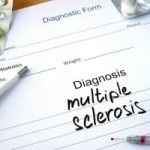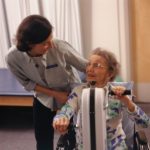2015 saw many advancements in multiple sclerosis, from new treatment options to digging deeper for potential causes. With each passing news topic we gain a greater understanding of the debilitating disease.
Here is a roundup of the top five multiple sclerosis stories of 2015 that you may have missed. The stories covered reveal how melatonin and vitamin D play a role in MS, along with demonstrating how much stronger those with multiple sclerosis truly are.
MS Relapse and Melatonin: Multiple sclerosis relapse risk influenced by melatonin levels
Advertisement
Study reveals that melatonin levels may increase the risk of relapse in multiple sclerosis patients.
 Using environmental observations, researchers have found melatonin levels may play a role in multiple sclerosis (MS) relapse risk. As an autoimmune disease multiple sclerosis involves environmental and genetic factors. Researchers aimed to better understand the environmental factors that may affect a multiple sclerosis relapse.
Using environmental observations, researchers have found melatonin levels may play a role in multiple sclerosis (MS) relapse risk. As an autoimmune disease multiple sclerosis involves environmental and genetic factors. Researchers aimed to better understand the environmental factors that may affect a multiple sclerosis relapse.
In a lab setting researchers tested melatonin on a cell level in both mouse and human models. They found melatonin affects two types of cells that play a role in the immune response in MS. Researcher Francisco Quintana, Ph.D., said, “We found that melatonin has a protective effect. It dampens the immune response and helps keep the bad guys – or pathogenic T-cells – at bay.”
Melatonin supplements can lead to intense drowsiness and are often used as a sleep aid. However, it is not advised to simply start supplementing with melatonin during daylight hours because it can affect your wakefulness. Learn More
Breastfeeding and Multiple Sclerosis Risk: Exclusive breastfeeding decreases risk of multiple sclerosis relapse
Research shows that the risk of having a multiple sclerosis relapse within the first six months postpartum is lower in women who exclusively breastfeed.
 A recent study shows that when it comes to a mother’s health, there is more to breastfeeding than just emotional value. The study showed that the risk of having a relapse of multiple sclerosis in the first six months postpartum, is lower in the women who exclusively breastfed their babies.
A recent study shows that when it comes to a mother’s health, there is more to breastfeeding than just emotional value. The study showed that the risk of having a relapse of multiple sclerosis in the first six months postpartum, is lower in the women who exclusively breastfed their babies.
For the study, a team from Ruhr-University Bochum in Germany took a close look at data from 201 pregnant women with MS. The data (2008 to 2012) was collected from the German MS and Pregnancy Registry with one-year follow-up postpartum information.
The study revealed that within the first six months after birth, 31 women (38.3 percent) who did not breastfeed exclusively had MS relapse. That percentage dropped to 24.2 percent in the women who intended to breastfeed exclusively for at least two months. Learn More
Multiple Sclerosis Treatment: New multiple sclerosis treatment using B cell depletion therapy
Overlooked B cells have been shown to play a vital role in the treatment of multiple sclerosis.
 Researchers from the Montreal Neurological Institute and Hospital of McGill University have found that the often overlooked B cells may play a larger than expected role in multiple sclerosis (MS), which could shed light on better treatment. Current beliefs suggest that multiple sclerosis is controlled by T cells that attack the myelin. The new research has revealed the importance of the previously overlooked B cells, which are produced in bone marrow and essential to immune response. Now researchers have found how B cells, too, contribute to MS.
Researchers from the Montreal Neurological Institute and Hospital of McGill University have found that the often overlooked B cells may play a larger than expected role in multiple sclerosis (MS), which could shed light on better treatment. Current beliefs suggest that multiple sclerosis is controlled by T cells that attack the myelin. The new research has revealed the importance of the previously overlooked B cells, which are produced in bone marrow and essential to immune response. Now researchers have found how B cells, too, contribute to MS.
The study examined samples of multiple sclerosis patients in comparison to healthy patients. They found B cells were more frequent and more activated in multiple sclerosis patients than in healthy patients. The B cells cause pro-inflammatory responses of myeloid cells in the immune system. After B cell depletion therapy, myeloid cells became less-inflammatory, suggesting the therapy could decrease B cells and prevent new disease activity from occurring. Learn More
MS Patients and Fitness: Multiple sclerosis patients more physically fit than tests reveal: Study
Study reveals that patients with multiple sclerosis are more physically fit than what previous research has suggested.
 Tests to determine cardiorespiratory fitness and muscular strength in people with multiple sclerosis (MS) may be greatly underestimating their abilities. This prompts doctors to prescribe physical therapy, which ends up being a less effective treatment than it should be. The findings come from researchers at the University of Illinois.
Tests to determine cardiorespiratory fitness and muscular strength in people with multiple sclerosis (MS) may be greatly underestimating their abilities. This prompts doctors to prescribe physical therapy, which ends up being a less effective treatment than it should be. The findings come from researchers at the University of Illinois.
Muscles strength was 60 to 173 percent greater when measured with computerized dynamometers compared to handheld devices. Aerobic capacity was 32 percent greater when tested with a recumbent stepper compared to an arm ergometer.
In many studies, individuals with severe disabilities are often excluded due to lack of proper equipment or transportation problems. The researchers suggest that those with the worse disabilities could benefit from such training. Exercise therapy has been shown to help mange symptoms related to MS. Learn More
Vitamin D and Multiple Sclerosis: Link between low vitamin D gene and multiple sclerosis found
Research has found a link between a genetic predisposition of low vitamin D and the development of multiple sclerosis.
Advertisement
 Research has uncovered a link between having low vitamin D and the development of multiple sclerosis. Sometimes called the ‘sunshine vitamin’ because most people get their daily vitamin D from exposing their skin to the sun. It seems only logical that previous research shows that cases of multiple sclerosis are higher in countries which experience the least amount of sunlight.
Research has uncovered a link between having low vitamin D and the development of multiple sclerosis. Sometimes called the ‘sunshine vitamin’ because most people get their daily vitamin D from exposing their skin to the sun. It seems only logical that previous research shows that cases of multiple sclerosis are higher in countries which experience the least amount of sunlight.
Research was conducted by McGill University in Canada where prevalence of multiple sclerosis was compared among Europeans with and without a genetic predisposition for low vitamin D. The findings revealed individuals with low blood levels – a marker of vitamin D deficiency – have a greater risk of developing multiple sclerosis compared to individuals without the genes.
Although the findings show promising new areas of research in regards to multiple sclerosis, researchers suggest if you are planning on upping your intake of vitamin D ensure you consult your doctor first; vitamin D in excess can lead to negative side effects. Learn More
With 2015 wrapping up, we can only hope that 2016 will bring about new advancements that carry us that much closer to a possible cure for multiple sclerosis.
